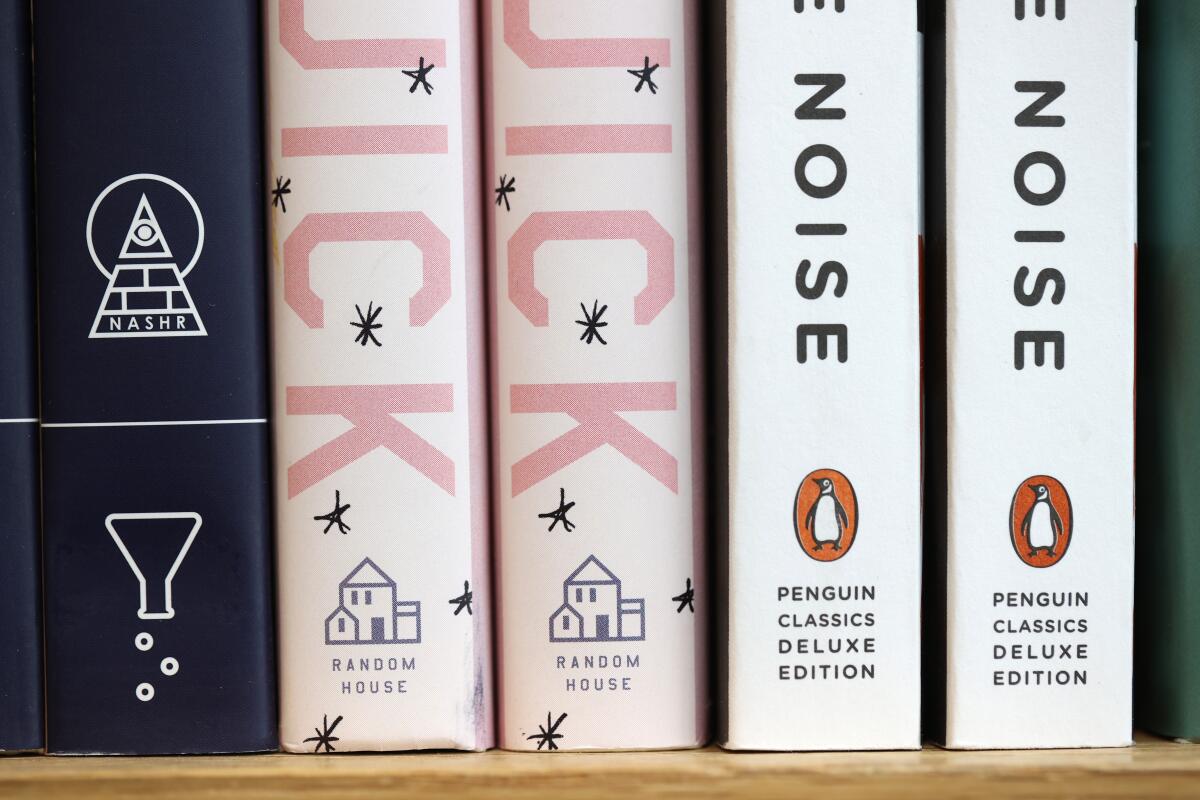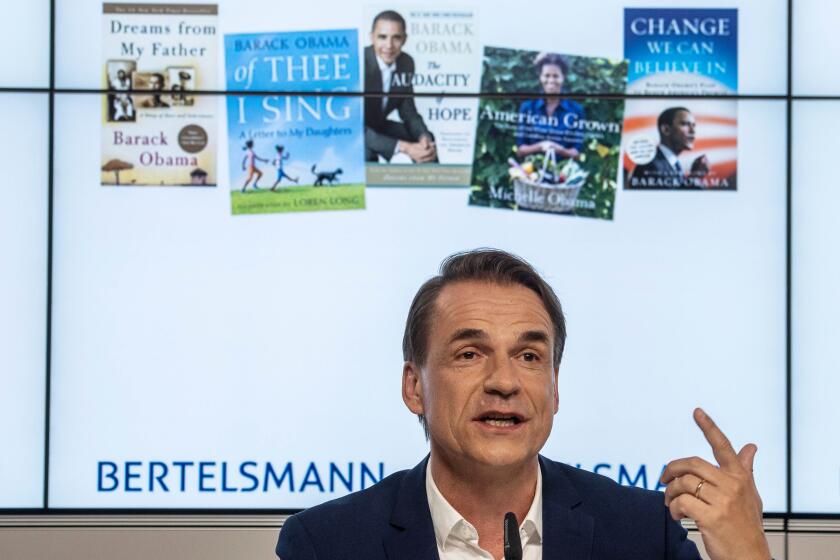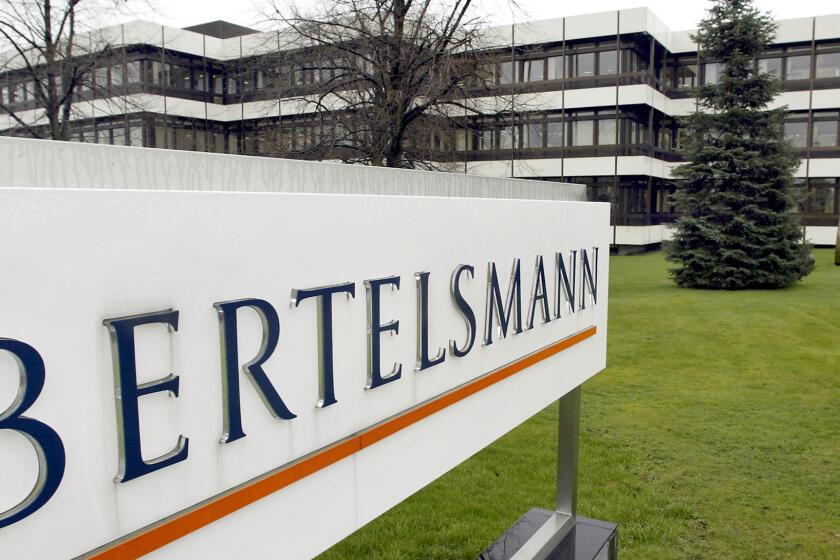Authors Guild doubles down on support of antitrust suit against publisher mega-merger

The Authors Guild has taken an in-depth look at the Department of Justice’s antitrust lawsuit against the mega-merger of Penguin Random House and Simon & Schuster and is doubling down on its support of the federal legal challenge that was filed Tuesday.
“The Authors Guild has for many years argued to the DOJ and FTC that consumers are harmed when authors’ incomes decline because authors must take on other work and write less or not at all,” the guild said in a position paper released Friday.
“Further, as we explained in our letter to the DOJ earlier this year, ‘The book publishing industry plays a uniquely important role in protecting democratic freedoms of speech and expression, which in turn makes anti-monopoly enforcement of the utmost importance.’”
The guild noted that the DOJ complaint “demonstrates an understanding” of how the proposed merger would affect the publishing industry’s already limited competition. There are just five dominant big publishers now, and the merger would make it four.
The planned merger of Penguin Random House and Simon & Schuster may be global but it’s bad for books both foreign and domestic.
“The proposed merger would enable the merged firm and the few competitors left to pay less and extract more from authors who often work for years at their craft before producing a book,” the guild noted. “By reducing author pay, the merger would make it harder for authors to earn a living by writing books, which would, in turn, lead to a reduction in the quantity and diversity of books — which subsequently harms consumers.”
Penguin Random House responded to the guild’s statement Friday with their own statement, promising that the merger wouldn’t affect advances or royalties.
“As the best steward for the varied Simon & Schuster imprints, Penguin Random House’s acquisition editors will continue to work with a diverse range of authors, ideas, and communities,” the statement added. “We look forward to continuing our long history of collaboration with the Guild and its membership.”
The concern about reduced competition stems from the practice at publishing houses of restricting constituent divisions or imprints from bidding against one another for new books at auction. At Penguin Random House, formed in a merger of Random House and the Penguin Group in 2013, divisions have been allowed to compete at auction only when external bidders are also involved.
Earlier this week, Penguin Random House and Simon & Schuster said in a joint statement that imprints would be allowed to bid against one another after the transaction closes.
“PRH is committed to keeping S&S’s imprints as separate, external bidders from PRH imprints in auctions post-closing [of the merger], just as they do today, even if they are the only ones left in an auction (up to an advance level well in excess of $1 million),” the Tuesday joint statement said.
U.S. regulators sue to block a $2.2-billion book publishing deal that would reshape the industry, saying consolidation would hurt authors and readers.
The Authors Guild focused particularly on those authors who might not produce bestsellers.
“Consolidation doesn’t just stifle competition, it also makes acquisition editors less willing to take risks on emerging or mid-list authors, voices from overlooked and marginalized communities, authors with unusual or controversial ideas, and literary writers who challenge the status quo both in content and style,” it said. “Yet it is only by pushing those limits that literature and society advance.”
Simon & Schuster was put on the block by ViacomCBS in March 2020, right before the pandemic hit the U.S. in earnest, and Penguin Random House’s proposed $2.2-billion purchase of the publisher was announced almost a year ago. The Authors Guild spoke out about the mega-deal in January, writing a letter to the DOJ asking it to block the consolidation.
“The takeover falls clearly within the standard of illegality set by the Clayton [Antitrust] Act and should be summarily rejected,” the guild wrote at the time, invoking the 1914 act that prohibits anti-competitive mergers, price fixing and other unethical business practices. Antitrust laws generally require large corporate deals to be reviewed and approved by the Federal Trade Commission and DOJ before they are finalized.
During the pandemic, book sales rose across the U.S. This fall, publishers are counting on major releases to keep it up — but also a return to normal.
On Tuesday, the U.S. filed an antitrust suit seeking to stop the merger.
“If the world’s largest book publisher is permitted to acquire one of its biggest rivals, it will have unprecedented control over this important industry,” Atty. Gen. Merrick Garland said Tuesday in a statement. “American authors and consumers will pay the price of this anticompetitive merger — lower advances for authors and ultimately fewer books and less variety for consumers.”
Jonathan Karp, president and chief of Simon & Schuster, called the lawsuit news “unsettling” in a memo to staff that was obtained by The Times. He said his company and Penguin Random House would work together to fight the government’s lawsuit.
“Notably, DOJ has not alleged that the acquisition would harm competition in the sale of books,” Karp said in the memo. “Simon & Schuster and Penguin Random House strongly disagree with the DOJ that this transaction will harm competition and believe firmly that there is no basis for these claims.”
Staff writer Dorany Pineda contributed to this report.
More to Read
Sign up for our Book Club newsletter
Get the latest news, events and more from the Los Angeles Times Book Club, and help us get L.A. reading and talking.
You may occasionally receive promotional content from the Los Angeles Times.











